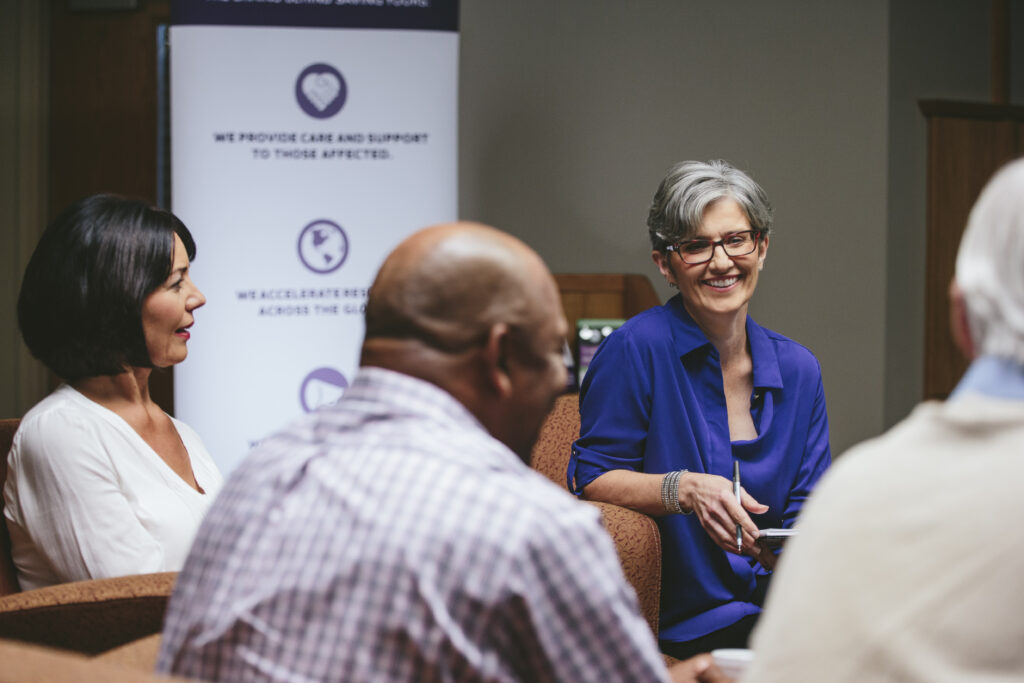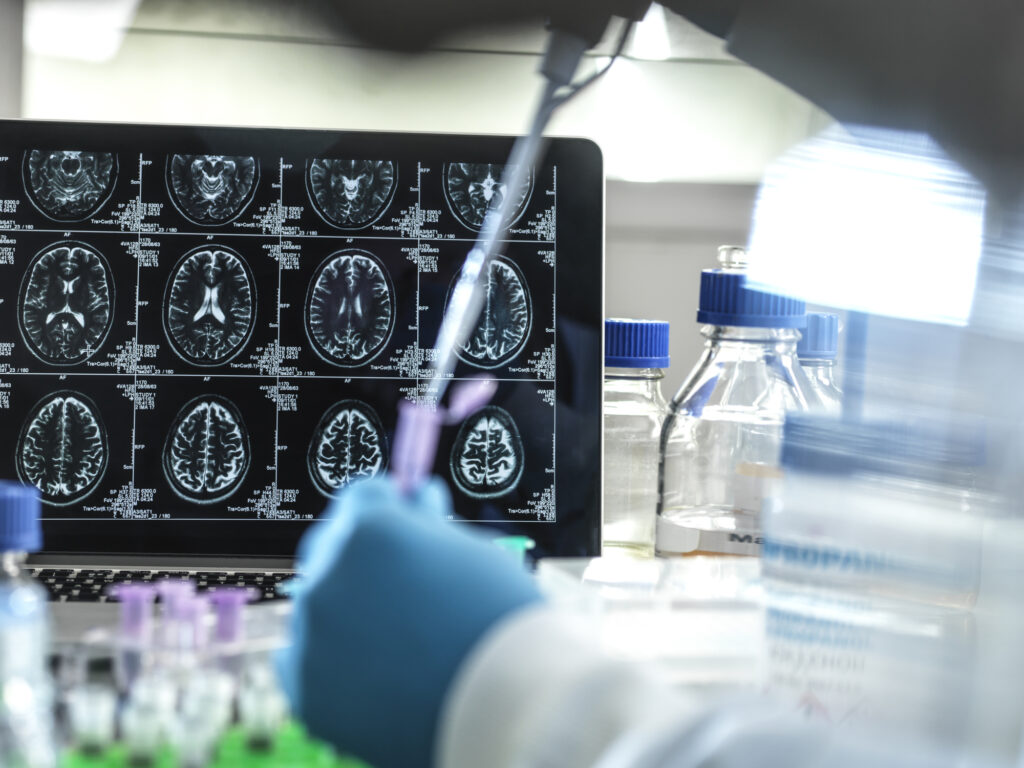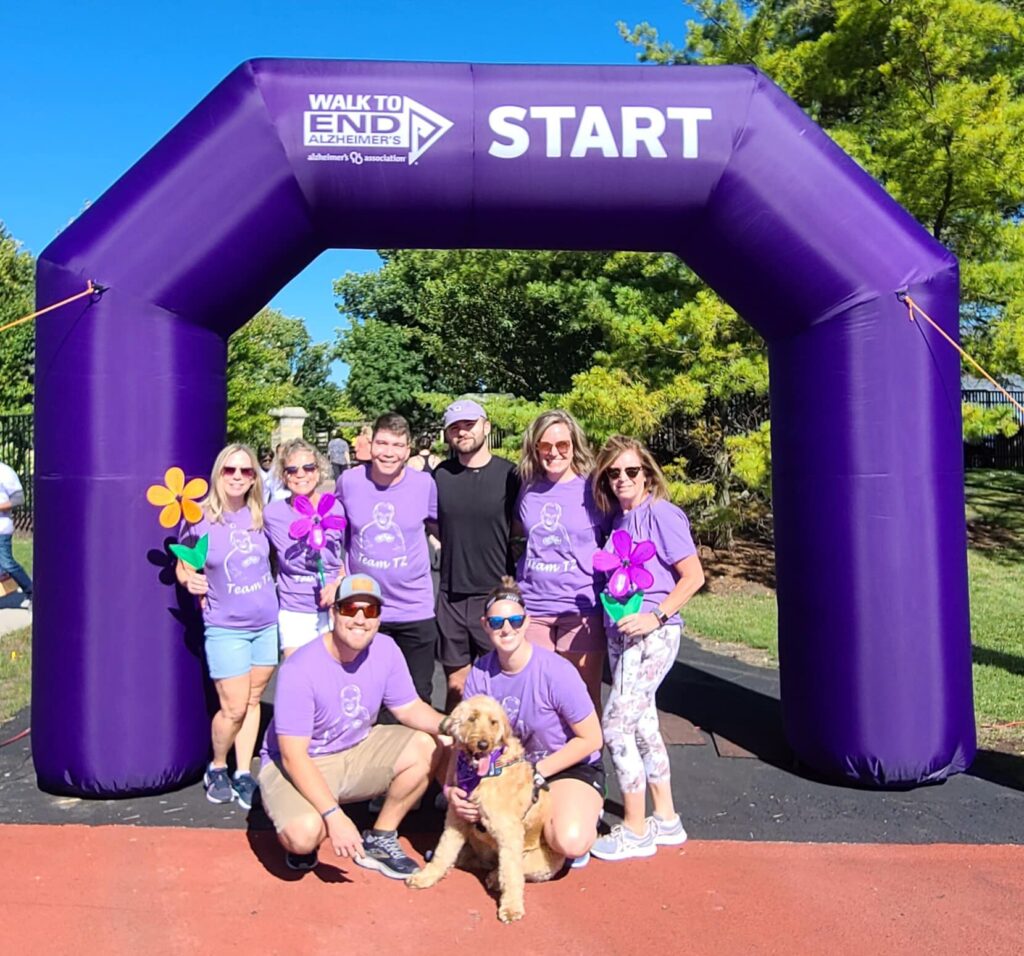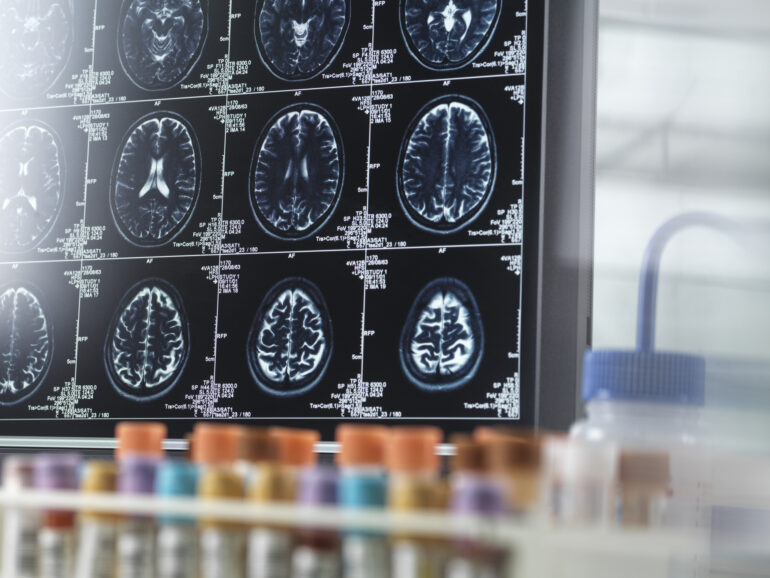The latest data about Alzheimer’s Disease has scientists and doctors strengthening their resolve and resources to find earlier diagnosis tools and interventions for patients.
According to the Alzheimer’s Association’s latest report, an estimated 6.9 million Americans aged 65 and older have Alzheimer’s, which is about 10.9% of that population. By 2050, the number is projected to rise to 13 million.
Despite the prevalence of Alzheimer’s in the older population, the Alzheimer’s Association also reported that an estimated 200,000 Americans under 65 have younger-onset Alzheimer’s.

The Centers for Disease Control and Prevention defines Alzheimer’s Disease as a progressive type of dementia that affects the thought, memory, and language parts of the brain. Typically, the early stages of the disease show up as mild memory loss. Unfortunately, Alzheimer’s can sometimes lead to a person losing the ability to talk and interact with his or her surroundings.
Knowing the potential signs and symptoms of Alzheimer’s can help potential patients and their families have a better understanding of how to talk with their doctor about diagnosis and possible care options.
New Alzheimer’s Research Includes Possible Blood Test Diagnostic Tool
Alzheimer’s Disease research has been making incredible strides recently, which is encouraging news to the millions of people affected by the disease.
Families of those touched by Alzheimer’s should know the Alzheimer’s Association is currently funding $430 million in active research and 1,110 research studies in 56 countries and find comfort in the fact that their dollars have funded ground-breaking research.

The Alzheimer’s Association International Conference 2024 (AAIC), the premiere conference on the latest in Alzheimer’s dementia research, recently revealed some stunning developments.
A highly accurate blood test is moving closer to doctor’s offices as a diagnostic tool.
“Research that came out is showing is that these blood tests were around 90% accurate and identifying Alzheimer’s disease in patients with cognitive symptoms, both that are seen in primary care and specialized Memory Clinics,” said Courtney Kloske, Alzheimer’s Association Director Scientific Engagement.
This signals a shift to a simpler, more accurate detection and diagnosis method, potentially superseding current expensive, invasive methods that are not always accessible.
The study presented at AAIC revealed that blood tests can detect Alzheimer’s better than traditional diagnostic methods, which both primary doctors and specialists use. Additionally, the study data showed that primary doctors were about 63% accurate in diagnosing Alzheimer’s, and specialists and neurologists were about 73% accurate. Adding the blood test increased accuracy to 90%.
“This is great to hear and is really something that will help us revolutionize the accuracy of diagnosis,” Kloske said.
She added that it could help reduce wait times for Alzheimer’s assessments to identify who has and does not have the disease. She cautioned that while some highly skilled and trained specialists are using the blood test, it is not yet FDA-approved.
“If you talked to researchers who have been in the field for a while, they would say 10 years ago, this a pipe dream…but we are at the point that these are accurate, and the field is advancing at a rapid pace. It is very exciting,” Kloske said.
Ozempic-Type Drug May Protect Brain
Another Phase 2 clinical trial presented at AAIC involves GLP-1 drugs, known to help with diabetes and weight loss and reduce the risk of heart disease that may protect the brain.
This trial shows that GLP-1 liraglutide (like Ozempic) appears to reduce shrinking in parts of the brain that control memory, learning, language, and decision-making by nearly 50% compared to placebo.

As a result, the new research suggests that liraglutide may protect the brains of people with mild Alzheimer’s and reduce cognitive decline by as much as 18% after one year of treatment compared to placebo by slowing the shrinking of parts of the brain that are vital for memory, learning, language, and decision-making.
Could Diet Affect Alzheimer’s Risk?
Another key takeaway from the AAIC convention is that people who eat about two servings a week of processed red meat have a 14% higher risk of dementia than those who eat less than about three servings a month. Bacon, hot dogs, and sausage are examples of processed red meat.
The study also showed that replacing one serving of processed red meat daily with one serving of nuts and legumes can lower the risk of dementia by about 20%.
The research involved more than 130,000 people who were followed for up to 43 years.
“We are in an era of unprecedented promise, with new treatments in various stages of development that slow or may possibly prevent cognitive decline due to Alzheimer’s disease,” said Maria C. Carrillo, Ph.D., Alzheimer’s Association chief science officer and medical affairs lead in a recent press release. “This research provides hope that more options for changing the course of the disease are on the horizon.
Carillo added that the advantage of repurposing drugs that are already approved for other conditions has the advantage of providing data from previous research and practical use.
“So, we already know a lot about real-world effectiveness in other diseases and side effects,” Carrillo said.
Other Important Brain Studies Showing Promise
Another promising clinical trial, the Pointer Study, focuses on healthy habits such as exercise, protecting your head by wearing a helmet when biking, being smoke-free, controlling blood pressure, and reducing red meat can be helpful to your brain.
With over 2000 participants from across the U.S, this study builds on the two-year Finger Study (Finnish Intervention Study to Prevent Cognitive Impairment and Disability) out of Finland, which reported that a combination of physical activity, nutritional guidance, cognitive training, social activities, and management of heart health risk factors protected older adults at risk of cognitive decline.
“One thing that is super exciting about this study is that it is incredibly representative of the U.S. population, with over 30% of the participants enrolled from underrepresented populations.,” said Kloske.
The results of the Pointer study are expected in the summer of 2025.
Finally, Part the Cloud is an innovative program that provides strategic funding to early-stage clinical trials, including those investigating gene-targeting therapies for Alzheimer’s disease and other dementias.
Help Raise Funds In The Walk To End Alzheimer’s
Since 1989, the Alzheimer’s Association Walk to End Alzheimer’s is the world’s largest event to raise awareness and funds for Alzheimer’s care, support, and research.

With so many breakthroughs in Alzheimer’s research on the horizon, now is the time to support the Alzheimer’s Association.
“This is a pivotal moment in the fight against Alzheimer’s. There are now treatments that change the course of the disease,” said Kate Shea, Vice President of Development for the Alzheimer’s Association Illinois Chapter. “We hope that everyone in our community can join us by starting a team to help the Alzheimer’s Association raise awareness and funds for families facing the disease today, take more steps toward treatments and finally ending this disease.”
How To Help
“This is why we walk.“
“At the Alzheimer’s Association Walk to End Alzheimer’s®, we’re fighting for a different future. For families facing the disease today. For more time. For treatments. We’re closer than ever to stopping Alzheimer’s. But to get there, we need you. Join us for the world’s largest fundraiser to fight the disease.”
For those looking for the Alzheimer’s Association Walk To End Alzheimer’s in your area, find a team or participant, visit the official Alzheimer’s Association Walk To End Alzheimer’s website.

The Make It Better Foundation is proud of our longstanding partnership with Alzheimer’s Association.

Susan Berger is a freelance journalist in Chicago and has written for the Washington Post, New York Times and Chicago Tribune. She was a 2021 CDC Fellow through the Association of Health Journalists, a National Press Foundation Fellow in 2019 to study vaccines and dementia. She also has written for Health Magazine, National Post, Agence France-Presse, and CBC and Better Magazine. Ms. Berger has appeared on the Today Show, NBC Nightly News, BBC World News, CNN, WGN-TV, WTTW-TV and on CBC Radio. Her work can be viewed at www.bergerreport.com and you can follow her on X @Msjournalist

